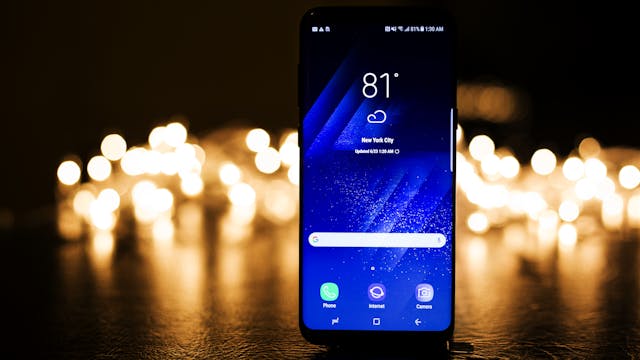In today’s hyper-connected world, where smartphones are an integral part of our lives, ensuring the security of personal data has become more crucial than ever.
Cyber threats are looming large and amidst this, having a secure phone has turned out as a necessity. However, finding the right choice seems daunting for many.
No worries! If you are on the lookout for a secure mobile device, you are in the right space. Here’s a rundown of the top 10 most secure options, vouching for robust security features!
Factors to Consider Ensuring that Your Device and Data Remain Safe
With the convenience of smartphones comes the looming threat of security breaches and data compromises. As cybercriminals increasingly target mobile devices, it becomes imperative for users to understand security measures to safeguard their privacy.
So, explore here the crucial factors to consider when assessing smartphone security. Prefer the options by considering these so that you can make informed decisions to protect yourself in an ever-evolving digital landscape.
App Permissions
Before installing any app, make sure to review the permissions requested by these apps. Be cautious if those apps are requesting access to sensitive data or unnecessary permissions.
Operating System Security
Different mobile operating systems have varying levels of built-in security features. Android and iOS are the most common ones. Assess the security measures implemented, such as regular security updates and patches.
Authentication Methods
Use strong authentication methods such as PINs, passwords, biometrics (fingerprint, facial recognition), or two-factor authentication to prevent unauthorized access to your device.
Encryption
Ensure that your device encrypts data both at rest and in transit. This includes features like full-disk encryption and secures connections for data transmission.
App Source
Prefer only credible sources to download your apps and that are Google Play Store or Apple App Store. Third-party app stores might host malicious apps that can compromise your device’s security.
Remote Wipe and Find My Device
Enable features that allow you to remotely locate, lock, or wipe your device in case it’s lost or stolen. This can help protect your data from unauthorized access.
Security Software
Install reputable mobile security software that can scan for malware, detect vulnerabilities, and provide additional layers of protection against security threats.
Network Security
Be cautious when connecting to public Wi-Fi networks, as they can be insecure and expose your device to various security threats. Consider using a virtual private network (VPN) for added security when accessing public networks.
Secure Backup
Regularly backup your device’s data to a secure location, such as a cloud service with strong encryption, to prevent data loss in case of device theft or damage.
By considering these factors and implementing appropriate security measures, you can help protect your smartphone and personal data from various security threats.
Why Would You Need A Secure Phone?
In today’s digital age, the necessity for a secure smartphone cannot be overstated. As our reliance on digital devices grows, so does the risk of cyber threats. From personal data breaches to financial information theft, the stakes are high.
Fortunately, tech companies are rising to the challenge, prioritizing data protection and online privacy in smartphone development. While most smartphones are susceptible to cyber attacks, some specialized models offer unparalleled security, ensuring both privacy and peace of mind.
So the need for a secure phone is not just a luxury but a necessity of today. By investing in robust security measures and staying vigilant against cyber threats, you can safeguard your digital identities and ensure a safer online experience.
Top 10 Most Secure Phones in India
For your ease, here’s the list of the top 10 most secure phones in India. Each of these devices boasts its own set of security features. Check the brief overview of the security features typically found in each:
1. Purism Librem 5
This is surely a phone built from the ground up with privacy and security in mind. Running on PureOS, an open-source operating system that prioritizes user control and privacy, the Librem 5 boasts hardware kill switches for the camera, microphone, Wi-Fi, and Bluetooth, giving users complete control over their device’s connectivity. Additionally, it utilizes end-to-end encryption for calls, messages, and emails, ensuring that your communications remain private.
2. Blackberry PRIVY 2.0
Blackberry devices are historically known for their robust security features. The PRIVY 2.0 likely includes enhanced encryption, secure boot processes, hardware-level security measures, and BlackBerry’s DTEK security software, which monitors and alerts users to potential security risks.
3. Samsung Galaxy S23 Ultra
Samsung has been increasingly focusing on security in its flagship devices. The Galaxy S23 Ultra features Samsung Knox, a defense-grade security platform that provides real-time protection against malware and other threats. It may also include secure folder functionality for isolating sensitive data.
4. Google Pixel 6 Pro
Google prioritizes security in its Pixel lineup. The Pixel 6 Pro likely features regular security updates directly from Google, Titan M security chip for protecting sensitive data, and Google Play Protect for scanning apps for malware. Pixel devices also benefit from Google’s Project Treble, which streamlines the update process for faster security patches.
5. Apple iPhone 14 Pro Max
iPhones are renowned for their security features, including regular iOS updates, hardware-based encryption, Touch ID or Face ID for biometric authentication, and the Secure Enclave for storing sensitive information. Apple’s ecosystem approach, where it controls both hardware and software, adds another layer of security.
6. OnePlus 10 Pro
OnePlus devices typically run on OxygenOS, which includes features like a secure fingerprint scanner, facial recognition, and a secure folder for storing sensitive data. Additionally, OnePlus often collaborates with security researchers to identify and patch vulnerabilities.
7. Katim R01
Designed for professionals operating in high-risk environments, the Katim R01 is a rugged smartphone engineered to withstand extreme conditions while safeguarding sensitive data. It features a secure boot process, encrypted storage, and a tamper-proof design to prevent unauthorized access. With its military-grade encryption and built-in secure communication tools, the Katim R01 is trusted by government agencies and organizations handling classified information.
8. Bittium Tough Mobile 2C
As its name suggests, the Bittium Tough Mobile 2C is built to withstand the toughest challenges while providing top-notch security. It ensures the integrity of both the hardware and software layers. Its secure communication capabilities, coupled with robust encryption protocols, make it a go-to choice for professionals working in sectors such as defense, healthcare, and finance.
9. Apple iPhone 13 Pro
Known for its stringent security measures, the iPhone 13 Pro boasts robust encryption protocols, regular security updates, and a secure enclave for storing sensitive information like fingerprints and Face ID data.
10. Samsung Galaxy S21 Ultra
Samsung’s flagship device comes with Samsung Knox, a defense-grade security platform that protects your device from malware and unauthorized access. With regular security updates and biometric authentication options, the Galaxy S21 Ultra is a secure choice.
Don’t Compromise on Security When Selecting Your Next Mobile Device!
In the hunt for a new mobile device, prioritizing top-tier security features is non-negotiable. Look for biometric device locking, disk encryption, and such applications that can safeguard sensitive data. Choose a device that meets performance, durability, and camera needs while ensuring an inaccessible digital fortress. Beyond security basics, prioritize battery longevity measured in days for peace of mind in staying connected. So, whether you’re a privacy-conscious individual or an organization handling sensitive information, consider one of these devices as your fortress in the digital realm.
You May Also Like:


 Mumbai
Mumbai  Chennai
Chennai  Hyderabad
Hyderabad  Mysore
Mysore  Bangalore
Bangalore 